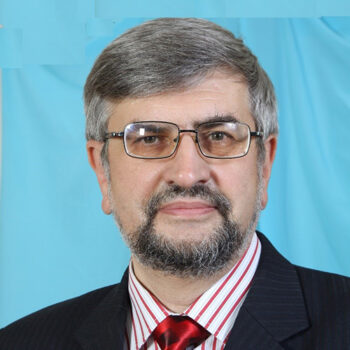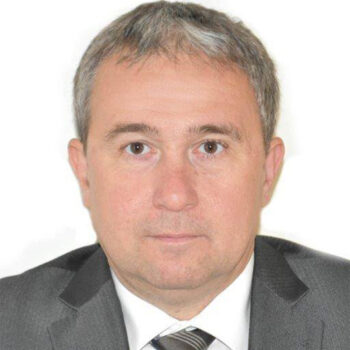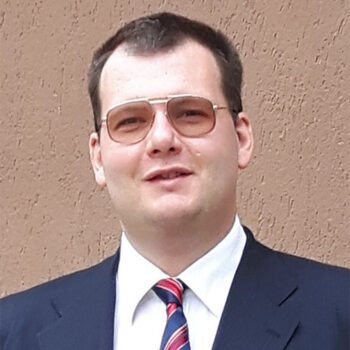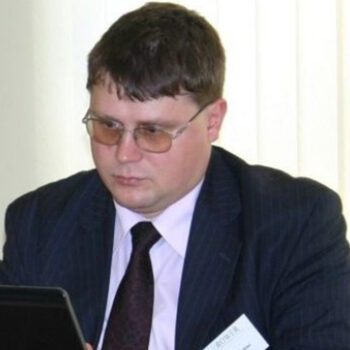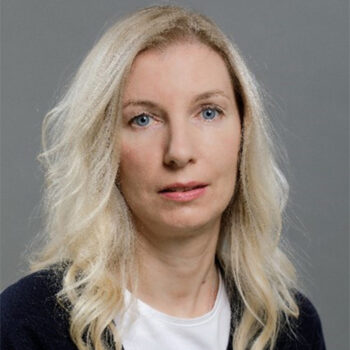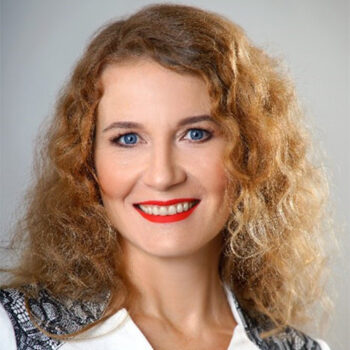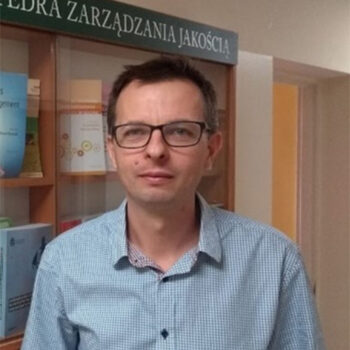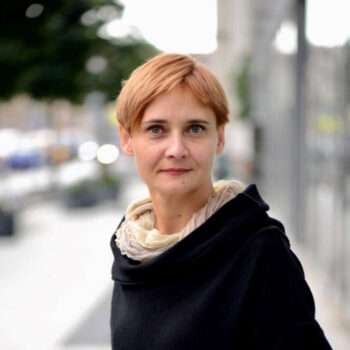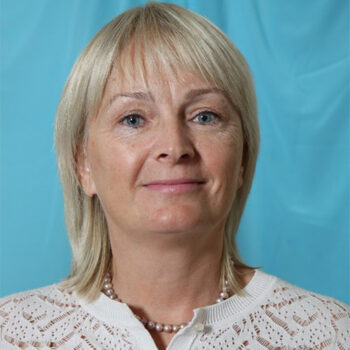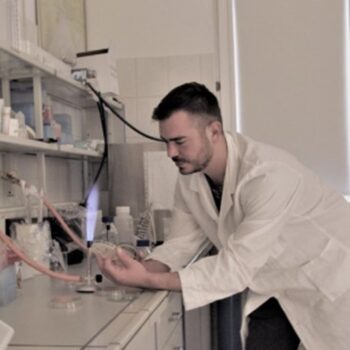Globalizacia 2020
- October 21, 2020 9:00 - 9:20Conference Opening
Editor and Guarantee of the conference; Head of the Department of Economics, Faculty of Operation and Economics of Transport and Communications, University of Zilina
Speakers: - October 21, 2020 9:20 - 9:40The adoption of mobile payment technologies, social interactiveconsumeroriented applications, and online purchasers’ decision-making process
This paper analyzes the outcomes of an exploratory review of the current research on the relationship between the global adoption of mobile payment technologies, social interactive consumer-oriented applications, and online purchasers’ decision-making process. Purpose of the article: The data used for this study was obtained and replicated from previous research conducted by Econsultancy and Statista. We performed analyses and made estimates regarding mobile e-commerce sales worldwide, frequency of mobile retail app usage according to U.S. smartphone shoppers, how well organizations understand the customer journey for certain audiences, share of Internet users who are likely to use mobile payments on their smartphone in the next year (by country), and time spent per mobile app category.
- October 21, 2020 9:40 - 10:00GDP Development of China and USA in terms of mutual sanctions and COVID-19
GDP Development of China and USA in terms of mutual sanctions and COVID-19
- October 21, 2020 10:00 - 10:20Heavy work investment: an empirical approach in the context of COVID-19 pandemic
Heavy work investment: an empirical approach in the context of COVID-19 pandemic
- October 21, 2020 10:20 - 10:40The Global Incoming Tourism Flow in Turkey and Its Influence on the incoming tourism flow in the Mediterranean and Black sea countries
For the past fifty years of globalization, the Turkish incoming tourism flow has played an ever increasing role on forming the demand and supply equilibrium in the tourism in the Mediterranean and Black sea countries. Purpose of the article: In this regards, the present papers aims at providing a more quantitative explanation whether and for which countries the Turkish incoming tourism flow does play a significant influence on the tourism industries and in what scale and direction. Further to these, the present paper also tries to point out the influences that the incoming tourism flows in the other Mediterranean and Black sea countries may have on the incoming tourism flow in Turkey.
- October 21, 2020 10:40 - 11:00Behavioural economics on higher education institution - Business collaboration paradigm in context of global competition
Behavioural economics on higher education institution - Business collaboration paradigm in context of global competition
- October 21, 2020 11:00 - 11:20Effectiveness of institutions supporting entrepreneurship in the EU. Are “new” members the burden or the European advantage in the global competition
- October 21, 2020 12:30 - 12:50The global flood of COVID-19 contact tracing apps: sailing with human rights and data protection standards against the wind of mass surveillance
Countries all around the world, especially in Europe, are rapidly introducing contact tracing apps and other surveillance technologies to tackle the spread of COVID-19 raising serious concerns about human rights and democratic principles. Purpose of the article: The article aims to analyse how human rights and data protection law regulate the COVID-19 contact tracing apps and reveal the biggest challenges that countries face in applying the essential requirements.
Speakers: - October 21, 2020 12:50 - 13:10Post-covid-19 socio-economic transformation in Polish cities. Necessity of revolution 4.0.
COVID-19 is the source of the biggest economic shock to the global economy since the Spanish flu. It combines of both: demand and supply shocks. As a highly unpredictable, rare and tremendously impactful, pandemic can be considered as a test of vulnerability and resilience of the cities. In the near future, it could be also the milestone, which will be incentive of change in urban policies and their social and economic transformation while making use of the achievements of Revolution 4.0. The important conditioning of our research is position of polish cities in globalised economy and the rapid development of new digital technologies. Purpose of the article: Analysis and assessment of the resilience of Polish cities to the crisis caused by the COVID-19 pandemic, as well as recommendations for public policies concerning the possibility of reducing interference in the performance of cities public functions by using new digital technologies.
- October 21, 2020 13:10 - 13:30Study of satisfaction with the organization of the studying process in remote mode during the COVID-19 pandemic: Sase urfu named after the first president of Russia B.N.Yeltsin
The current situation in the country and the world related to the COVID-19 pandemic has had an impact on almost spheres of human life including Education which have undergone total functional changes. The key aspects of the transition to remote learning are: monitoring the process of remote learning and feedback from students; technical and competence-based equipment of the educational process; the organization, format and quality of training; self-organization of educational activities and its effectiveness. Purpose of the article: To study the strengths and weaknesses, of the activities for the transition to remote learning mode in order to develop technologies to improve these processes if there is a need for them in the future.
Speakers: - October 21, 2020 13:30 - 13:50Study of factors influencing the transformation of medical staff’s well-being in the context of the COVID -19 pandemic
The pandemic caused by COVID-19 is one of such situations that required urgent, anti-crisis solutions on organizing medical-care and support for the life of people. Special attention in scientific research of scientists from different countries is paid to medical workers, as the main participants in the elimination of the pandemic, whose external and internal working conditions have changed to a greater extent. Purpose of the article: to investigate factors those affect the well-being of health care workers in the workplace during the COVID-19 pandemic.
- October 21, 2020 13.50 – 14.10Globalization and post-pandemic world order: Place of Georgia in transformative international system
Many scenarios of organization of the international system of the post-pandemic era has been formulated. Purpose of the article: The purpose of the article is the prediction one of these scenarios using simulation analysis of the situation which will be formed after the economic and political crises caused by COVID 19 and the determination the place of Georgia in post-pandemic globalized order.
- October 21, 2020 14:10 – 14:30Remote certification processes during global pandemic times
Conformity assessment as defined in the ISO/IEC 17000 standard shows that the specified requirements for the product, process, system, person or entity have been met. A special type of conformity assessment is certification, in which the assessment is carried out by independent organizations, which has been confirmed by an accreditation body. The current crisis related to the development of the COVID-19 global pandemic has forced many organizations to change traditional forms of operation and, where it was possible, switch to a remote mode of work. Purpose of the article: The need to adapt to new realities did not bypass the certification bodies that adapted to the emergency situation, using the possibilities of remote work, including as part of certification processes. The purpose of this publication is to indicate the context of the certification bodies' operation and the impact of such proceedings on trust in the results of their work as well as to show the changes of the way of conducting certification audits by the certification bodies.
- October 21, 2020 14:30 – 14:50University life during pandemic COVID-19: Attitudes of staff and students towards distance education
The analysis of the problem was carried out according to the standard scheme: collection of information - description of the received data - generalization of data - recommendations. All the information available on this subject was obtained by questioning teachers, administrative staff and students. Purpose of the article: This case study is aimed at studying social objects and relationships in the process of transition from traditional to remote education methods to obtain new information and identify relevant patterns that depend on gender and position at the university.
- October 21, 2020 14:50 – 15:10Military spending and GDP: is there a mutual influence? (Study on the example of Russia)
The problems of the military production, its role in the process of social reproduction is of interest to economists, at least since the time of the English classical political economy. Research by modern economists in this area is focused on finding the answer to the question “Do military spending affect the dynamics of GDP and, if so, is it positive, negative, linear or non-linear. Purpose of the article: The main goal of the study is to identify a possible correlation between the level of Russia's military spending and the movement of its GDP. As a working hypothesis, it has been suggested that under the current structure of military expenditures in Russia, their increase will not unequivocally contribute to accelerating or slowing of GDP dynamics.
- October 21, 2020 15:10 – 15:30Should I stay or should I go? Global COVID-19 pandemic influence on travel intentions of Bulgarian residents
The COVID-19 pandemic brought an unparalleled global lockdown and economic paralysis, with the travel and tourism sector being among the worst affected industries worldwide. This situation has set a lot of questions regarding the future of tourism and its re-shaping into a ‘new normality’, among which those referring to anticipated changes in tourist demand and behavior stand out. Such questions are empirical in nature and imply conducting of studies in various contexts in order to identify customers’ perceptions, attitudes, intentions, and real behavior patterns. Purpose of the article: The paper presents results of a recent study of the influence of COVID-19 pandemic on travel intentions of Bulgarian citizens and discusses them in relation to other similar studies conducted in different countries.
- October 21, 2020 15:30 – 15:50Global impact of COVID-19 on 112 emergency system detailed for national 112 emergency system of Romania
During COVID19 crisis, in order to limit and control the multiplication of infections with the new virus, the Romanian Government forced restrictions and established fines to those not staying in line with the rules. The rules had been applied not only to citizens but also to private companies and state authorities. Due to these legal constraints taken during the declared state of emergency and the next state of alert, the appropriate attitude effects occurred in terms of behaviour of individuals and companies. Purpose of the article: One of the positive side effects of the measures taken during the state of emergency and the state of alert, is a decrease of non-real emergency calls in public safety answering points, small in value but important for dealing with real emergencies.
- October 21, 2020 15:50 – 16:10Structural change for sustainable development in economy: A literature review
Sustainable development in economy become topical issue worldwide. Global trends of socio-economic consequences due to climate change challenge economic structures. Introducing the principles of sustainable development in economy in its sense and in most cases relates to a structural change. This means economic development and changes in the sectoral structure of economy according to the sustainability concept. Following to this concept one may suppose that sustainable development is an aim and structural change is a tool for reaching this aim in economy. It is noteworthy that scientists consider structural change and sustainable development in their researches, although, rarely in economic subject area. In this context, it is significant to understand those spheres of economy, where structural change already contributed to sustainable development and where still has unrealized potential.
- October 22, 2020 8:30 – 8:50The impact of capital structure on financial performance of global listed companies
Previous empirical research presents mixed evidence on the relationship between capital structure and financial performance (Vinh Vo and Ellis, 2017; Vătavu, 2015; Yang, Chou, Cheng and Lee, 2013) among different companies, industries and in different geographical areas. There seems to be little to no research in this respect specifically concentrating on the case of global listed firms that not only operate in the global environment, but also do not depend on circumstances of individual countries. Purpose of the article: to assess what impact capital structure has on the financial performance of global listed companies.
- October 22, 2020 8:50 – 9:10Sustainable equity crowdfunding projects: are they a driving force to revitalise Italy after COVID -19?
The outbreak of COVID-19 has disrupted and shaken all economic and financial sectors. In this scenario, crowdfunding has emerged as a new relevant financing mechanism alongside more traditional funding channels by attracting investors through an internet-based method of fundraising to support ventures. In recent years, many crowdfunding platforms, specialized in green projects rose, allowing start-ups to raise funds for their campaigns. The literature on the use of crowdfunding in the sustainable sector is quite limited. Purpose of the article: We use a hand-collected dataset of 350 equity crowdfunding campaigns, gathered from the Italian platforms over the period January 2016-June 2020, to analyze the impact of COVID-19 outbreak on the success of green equity crowdfunding projects.
- October 22, 2020 9:10 – 9:30Debt or profit shifting? Assessment of corporate tax avoidance practices across companies operating in small open economies: evidence from Lithuania
Multinational enterprises (MNEs) employ tax avoidance by ability to use differences in tax systems of various countries and via profit or debt shifting strategies to successfully incur effective tax rate that is lower than the statutory one. Previous empirical research in this area mainly covered large countries (USA, Germany) or regions (e.g. Europe) leaving a gap in research on small economies characterized by lower corporate income tax rates, which makes countries such as Lithuania a relevant case for the analysis. The purpose of the article is to assess evidence of corporate tax avoidance across companies operating in a small open economy and to identify which channel - debt or profit shifting – is employed. Regression analysis with fixed effects was applied to a sample of 3,563 Lithuanian companies for the period of 2010–2018. The data was retrieved from Amadeus database.
Speakers: - October 22, 2020 9:30 – 9:50Do taxes affect number of foreign enterprises controlled abroad by Slovak companies in the age of globalization?
Globalization has so far brought the possibility of international trade as well as the possibility of establishing companies abroad. Countries see a number of benefits in attracting foreign enterprises. However, the question arises about how countries may affect the number of enterprises established by domestic companies abroad? Purpose of the article: The aim of this article is to find out whether corporate income tax rates have an impact on establishment of foreign controlled companies by Slovak companies abroad. Secondly, the aim of the work is to uncover whether trading across borders (which represents globalisation), may influence the decision-making of such companies. To verify this, two groups of countries were created: one with a lower and the other with a higher average corporate income tax rates compared to the average rates in the Slovakia.
- October 22, 2020 9:50 – 10:10The network of bilateral tax treaties of the Slovak Republic – Does it mirror globalization through digitalization? A cluster analysis approach
Globalisations and movement of production factors - especially capital and workforces, call for elimination of double international juridical taxation and consequently for negotiation of bilateral tax treaties. Recently global network of bilateral tax treaties has reached immense size. Purpose of the article: The purpose of this paper is to analyse the network of bilateral tax treaties of the Slovak republic from the point of view of distance and level of development of the Contracting States.
- October 22, 2020 10:10 – 10:30Determinants of accounting and market-based performance measures – Case of Croatian non-financial listed companies
Profitability and the factors that determine it have always intrigued the scholars. Despite the large number of studies dealing with this topic at the international level, this paper sheds a new light on the issue since it deals with the listed companies in an emerging economy confronting two performance measures. Purpose of the article: The aim of this paper is to provide evidence on performance of Croatian non-financial firms listed on Zagreb Stock Exchange (ZSE).
- October 22, 2020 10:30 – 10:50Regional human capital development management in the process of globalization
Active development of information technology and globalization have made the digital economy an integral part of global and national economic systems. A key factor in the success of globalization processes is the availability of highly qualified personnel in sufficient volumes and relevant jobs, as well as a training system for specialists with certain competencies for the development and implementation of digital technologies. Purpose of the article: development of guidelines for innovative management of regional human capital formation in the global economy.
- October 22, 2020 10:50 – 11:10Competition criminal law: An international and global trend?
Competition laws have become widespread and as a rule have a sanctioning nature. DANVERS refers an exponential increase in legal systems that introduced competition laws in recent years, accounting for more than 127 jurisdictions hereto. Specifically concerning the trend of criminalizing cartels, SHAFFER and NESBITT consider it due to transnational interests, and SÁNCHEZ defends a link between the economic subsystem as the engine of globalization and the economic law with the latter – where economic criminal law, competition law, financial markets law, among others are included - being subject to strong international influences, and possibly being moreover a sign of democracy.
- October 22, 2020 11:10 – 11:30Electronic and informatization of the judiciary as a tool for innovation
The computerization and computerization of the judiciary are important support tools with great potential in addressing key issues in the judiciary. The basic architecture of the modernization and informatization of justice consists of the Electronic Judicial File, Development of Electronic Judicial Services, Electronic monitoring of offenders and the Register of Bankruptcies projects. In terms of scope and financial volume, the most intensive electronicization of Slovak courts in their modern history is currently underway. At present, an electronic person monitoring system is also being successfully implemented in Slovakia, which represents a fundamental modernization of prisons, but also an increase in the safety of citizens against perpetrators of violent crimes, domestic violence or crime at public mass events. Purpose of the article: The main goal of the paper is to analyze the problems in the electronic justice system with a focus on the issue of introducing electronic monitoring of offenders.
- October 22, 2020 11:30 – 11:50Telemedicine from the legal point of view
The use of various information systems is currently beginning to be increasingly promoted also in the area of provision of health care. This is the so-called telemedicine and nowadays can by considared as standard - the prescribing of electronic prescriptions, enrolling in a doctor's waiting room online and so on. One of the last services in telemedicine was the introduction of a video-call with a doctor as a form of teleconsultation. However, the video-call with the doctor is not recognized by the current law and allows it to be performed only as an emergency form of replacement of medical examination during a pandemic-related emergency. The use of telemedicine for that raises a number of serious legal issues that need to be solved.
- October 22, 2020 12.45-13.00The qualitative comparative analysis: An overview of a causal complexity approach
Alongside with the development of configurative comparative analysis aiming at identification of necessary and sufficient conditions, various formal methods used for this purpose have been formulated during the last decades. One of them is qualitative comparative analysis (QCA), one of approaches used for causal explanation of phenomena of cases performed in the field of international economics and global affairs. The main purpose of the article is to provide a detailed overview of the QCA method in global context, to define its methodologic foundations and consequently introduce the key concepts of the method. The article also provides a comparison of QCA to typical tools of qualitative and quantitative approaches.
- October 22, 2020 13.00 – 13.20Financial analysis as a basis for creation of the financial plan of the selected business entity – Case study
The scope of this article is a practical application of financial analysis of the company. The analysis can be used as a basis for the creation of a financial plan for the next years. The main sources of information include financial statements balance sheet and income statement over the period of the last 3 years. Other sources are information obtained from employees of the company and information gained by studying a literature. The analysis process begins with identifying of the main objectives and targets, continues with the methodical procedure, analysis of indicators and an interpretation of the analysis results. The main objective of the analysis is to evaluate the assets, the sources and the overall economic situation of the company. The key indicators that need to be addressed are the status and development of current and non-current assets, the status and development of equity and liabilities and a profit development.
- October 22, 2020 13.20 – 13.40Sustainable development of corporate reputation – Reputation analysis of the selected brands owned by the family businesses
The paper discusses the issue of sustainable development of corporate reputation, more specifically discusses the issue of traditional and innovative approaches to reputation management of selected global brands owned by the family businesses. Purpose of the article: The main aim of the paper itself is to present the available ways and methods of measuring the phenomenon of reputation, especially online reputation, as the modern challenge for responsible and sustainable development of the perceived image of subjects, as their very fragile intangible assets.
- October 22, 2020 13.40 – 14.00Socio-economic importance of biomaterials in the transition to the circular economy model
The adoption of the 2030 Agenda for Sustainable Development obliges individual countries to take actions aimed at achieving the seventeen goals of sustainable development. One of the tasks is to transform the economy into a circular economy. The necessity of transformation results from the growing number of manufactured products and the growing amount of generated waste, especially those made of plastics. Waste management and disposal may also have significant environmental effects. Therefore, EU waste management policy aims to reduce the impact of waste on the environment and health and to improve the efficient use of resources in the EU. The long-term goal of this policy is to reduce the amount of waste generated, and if its generation is unavoidable, to promote its use as resources, to increase recycling and to ensure safe disposal of waste. Hence the need to change the current economic model based on a linear approach to the circular economy.
- October 22, 2020 14.00 – 14.20Packaging's of the organic farming products in the context of circular economy
Food production is more and more globalized concerning not only the suppliers of food ingredients and producers but also considering the packaging trends and solutions available on the market. In opposition to that trend the EU high quality food products schemes were implemented such as organic farming products or traditional and regional ones. That products are usually perceived as good for the environment which is not always case when the packaging of that products are considered. The other global trend described in the paper that is focusing the attention is circular economy idea that points to the takeover from a linear economy to a circular economy. This paper combine the specific product (organic food) and its packaging with the recommendations of circular economy.
- October 22, 2020 14.20 – 14.40Shopping tourism with a focus on the clothing industry in relation to globalization
The paper deals with the connections between international tourism and shopping, and therefore the purchase of clothing in relation to consumers. In the last few years, shopping has become one of the factors determining tourist's decisions about choosing a travel destination. One-third of tourists have ever travelled just to buy clothes abroad. Such behaviour offers enormous economic potential for companies and the state economy. Shopping tourism is an integral part of globalization. Purpose of the article: The article’s aim is to characterize the elements of consumer behaviour in the framework of shopping tourism when buying clothing products.
- October 22, 2020 14.40 – 15.00Consumer behavior in the meat market within the V4 countries: Social consequences for the length and quality of life
The current pandemic era with global overlaps creates a room for the market segmentation. Lifestyle monitoring is based on a combination of - activities, interests, opinions (AIO), with respect for social consequences in order to increase the quality of life. Purpose of the article: The aim of the paper is to analyse, compare and predict the consumer behavior in the meat market in the V4 countries and outline the possible social consequences of this consumer demand on quality of life.
- October 22, 2020 15.00– 15.20Product packaging communication on the global market – Analysis of consumer behaviour
The changes in lifestyle observed in global society have led to an increase in the importance of packaging and labelling as a means of conveying information from the manufacturer to the consumer. Global strategies of international companies assume the use of the same packaging in all markets. Such behavior may cause problems in the interpretation and recognition of the intended use of food packaging by consumers. Purpose of the article: The aim of the study was to analyze consumer behavior related to the selection of canned carbonated drinks offered by various producers, operating on the global and local market
- October 22, 2020 15.20 – 15.40Labor economics and career development in the context of globalized world
The paper uses labor economics and career theory to design an integrative approach to career research focusing on new occupations and career development. Purpose of the article: The purpose of this paper is to call for an integrative approach to career research aiming to characterize labor market trends and discuss perspectives on careers using highly skilled migrants from Central and Eastern Europe as a case. The paper discusses the specificity of career development in the context of the Industry 4.0. and an integrative approach vs. other approaches.
- October 22, 2020 15.40 – 16.00Evaluation of gambling sector activity in Lithuania, Latvia, Slovak Republic and Czech Republic
Gambling is a specific activity that has an undoubtful impact on the national economies, however the evaluation of this sector still has been analyzed very little by economists. This article comparatively analyzes the peculiarities of the gambling sector activity in Lithuania, Latvia, Slovak Republic and Czech Republic in the period from 2015 to 2020. Purpose of the article: The purpose of the article is to evaluate the activity of the gambling sector in Lithuania, Latvia, Slovak Republic and Czech Republic.
- October 22, 2020 16.00 -16.20How PR professionals react and adopt globalization challenges: Mapping of PR professional competencies based on information from webpages of international PR professional associations (2015-2020)
- October 23, 2020 08.30 - 08.45Globalization - a Cause or a Solution for Corona Economic Crisis
Since the extension of the Corona virus there are people saying that all this is happening because of globalisation, phenomena that diminished the control of states at the borders, lack of strong internal security rules, loose of political responsibility and decisions, etc. In this paper we investigated the situation from different economical perspectives and we clearly show the existence of positive effects of globalization. We will never know certainly enough at which percentage the current crisis results from a mismatch between the intensity of economic and human exchanges and the inability of public authorities to be prepared and take fast and appropriate decisions. It is well accepted that in a globalized world, interdependence prevails over sovereignty. We will analyse if this reality is really one of the main problems which cause the current disaster.
- October 23, 2020 08.45 - 09.00Aviation industry - challenges and uncertainties after the Covid-19 pandemic
If at the moment we have heard news about bankruptcy only about few companies (LGW –a regional German airline and Latam Airlines - South America’s biggest carrier) is because, generally, they still have cash reserves and important demands for help was sent to the governments but the situation is quite dramatic. In this article we will analyse why the aviation sector is facing one of the most complicated times after the 9/11 WTO, what are the main constraints for the industry future and what real measures can be taken in order to recover the situation.
- October 23, 2020 09.00 - 09.15Increasing the Efficiency of the Fiscal System – a Parallel between Poland and Romania
Although we are talking about the 21st century, about evolution, economic, financial and fiscal sustainability, the Romanian tax system has been intensely blamed for its inefficiency, outdated procedures and last but not least the excessive bureaucracy. This topic was intensely discussed and debated both by the competent authorities who tried to identify the deepest issues and by the specialized press representing a great interest for both natural and legal taxpayers. The purpose of this paper is to identify the challenges, limits and solutions so that the Romanian tax system can become efficient and implicit, a model to follow for success.
- October 23, 2020 09.15 - 09.30CoVid19, a Threat or a Blessing to Globalization?
The new CoVid19 took by surprise almost all the countries were not aware that encountered the virus. It is most likely that many countries did not even know, realize or were not aware that the virus was already spreading in their homeland. We can consider that it was like a “tornado” or even worse like a “Geo-Storm” that affected almost each country in the World.
Purpose of the article: The healthcare system in each country was caught unprotected to such a large scale of need of medical supplies and devices. The lack of medical supplies showed the dependence of many countries on too few manufacturing countries. - October 23, 2020 09.30 - 09.45The level of education of graduates in Romania in the context of globalization
Technological changes are one of the reasons for the resizing of jobs. The process is accentuated by globalization. There are changes in the labour market that require people with higher skills.
Purpose of the article: For Romania, the analysis of the level of education of graduates at regional level, depending on the county, is presented in this article. In the paper, depending on the level of education, the evolution at county level of the number of graduates is presented. - October 23, 2020 9.45 – 10.00Analysis of the impact of globalization on the global labor force
Research background is written after the literature review. For example, german researcher Ulrich Beck claims that contemporary society has entered a new phase in which the nature of natural resources has become stressful. G. Barraclough argued that no matter how important the political, cultural, ecological factors ultimately are, it is the economy that determines the evolution of the globalization process. Purpose of the article: The present article follows the identification of the impact on the phenomenon of the current phenomenon of the naming of globalization on the labor force and how the phenomenon of migration is conditioned with the main factors.
- October 23, 2020 10.00 – 10.15Sustainable Urban Development in the Context of Globalization and the Health Crisis Caused
The United Nations reports and considers that urban areas are the zero zone of the COVID-19 pandemic, with 90% of cases reported as cities brutally facing the crisis with tense health systems, inadequate water and sanitation services and other challenges, especially in areas poorer, where the pandemic has exposed deep-rooted inequalities. The objectives of sustainable development of human settlements are related to controlling the evolution of urban space, in order to build a more balanced system, especially monitoring the dynamics of urban growth, mitigating spatial and social segregation especially in large cities, environmental and transport problems.
- October 23, 2020 10.15 – 10.45The dynamics of innovation in the ex-communist countries in Europe in the context of globalization
Even if they share a similar background, the ex-communist European countries have started since the ‘90s to differentiate one from another in terms of development. Nowadays, the gaps between them are significant in many aspects of the socio-economic environment, including innovation. Measurements done by Cornell University, INSEAD, and WIPO through the Global Innovation Index give us the opportunity to compare the achievements from the last 30 years of the ex-communist countries. Purpose of the article: The purpose of this paper is to point out the major gaps between the European ex-communist countries in terms of innovation – both innovation inputs and innovation outputs – in the context of globalization, and the way the globalization fostered or suppressed the innovation.
- October 23, 2020 10.45 – 11.00Are 2020’s Social Movements Proof of the End of Globalization?
This paper is targeted towards the concept of globalization, its limits and how today’s social movements are proof of a new path needed for sustainable development, sustainability as a goal, economic growth as social progress and the need for taking care of all nationalities, all types of countries when it comes to their development (emerging versus developed) and importing the American’s Navy principle, “No man left behind”, in this case from a social and economic perspective, because we try to highlight that today’s protests and riots are actually based on the need to be listened on the issues they have, each economy having different issues for its population and these vary from LGBT issues, Black Lives Matter, All Lives Matter and anti-corruption movements.
- October 23, 2020 11.00 – 11.15Education and Employment in European Urban Communities
In the context of globalization, education processes are of great importance for the development of urban communities. Identifying the needs of the labour market should be the goal of any organization that provides education and training. Purpose of the article: Globalization leads to the emergence of new specializations and qualifications. In order to facilitate the acquisition of competencies and abilities specific to new qualifications and specializations, it is necessary to involve education and training providers.
- October 23, 2020 11.15 – 11.30Globalization and working conditions in developing countries
Some critics have said that the competitive pressure imposed by international competition is likely to create a downward trend in global labor standards. Anti-globalization advocates have frequently argued that globalization-induced competition causes firms to ignore labor standards in their efort to reduce cost. Purpose of the article: The aim of this paper is to offer globalization, a concept that identifies in the minds of many people with multinational companies and greedy capitalism and that would exploit anyone, a more humane image in terms of the beneficial effects it has on working conditions. On the other hand, based on a case study, we want to identify the impact of globalization in certain developed and developing countries - Indonesia.
- October 23, 2020 11.30 – 11.45E-government in the Era of Globalization and the Health Crisis caused by the Covid-19 Pandemic, between Standards and Innovation
If we accept the definition according to which eGovernment (or e-government) is an applicability of information technology for the provision of administrative services, information exchange, communication transactions, integration of various electronic systems and autonomous services between government and citizen (G2C), government and business environment (G2B), government and government (G2G) as well as for the processes and interactions of administrative staff in the entire infrastructure of the administration, and through e-government, government services are available to citizens in a convenient, efficient and transparent way, then we will accept and the conclusions of the same research that considers that in e-government there are no identifiable barriers.
- October 23, 2020 11.45 – 12.00The dynamics of human capital accumulation in the ex-communist countries in Europe in the context of globalization
Countries with a similar background before 1990, in the communist bloc in Europe, have begun since the ‘90s to differentiate one from another in terms of development. Nowadays, in many aspects of the socio-economic environment, including welfare and labor productivity, the gaps between them are significant. Measurements done by World Bank Group through The Human Capital Project give us the opportunity to compare the achievements from the last 30 years of the ex-communist countries building strong democracies and open markets. Purpose of the article: The purpose of this paper is to identify the major gaps between 8 EU ex-communist countries in terms of human capital accumulation in the context of globalization – and the way the globalization fostered or suppressed the human development and human capital accumulation.
- October 23, 2020 12.45-13.00Earnings management: Local or global phenomenon in the Visegrad four?
- October 23, 2020 13.00-13.20Cluster analysis of the economic activity of Slovak companies regarding potential indicators of earnings management
- October 23, 2020 13.20-13.40Transfer pricing and controlled transactions in connection with earnings management and tax avoidance
- October 23, 2020 13.40-14.00Earnings quality and accruals over company´s life cycle
- October 23, 2020 14.00-14.20Historical development of earnings management models
- October 23, 2020 14.20-14.40Motives and techniques of earnings management used in global environment
- October 23, 2020 14.40-15.00Detecting the manipulation of earnings in the company: Triangulation of methodsSpeakers:
- October 23, 2020 15.00-15.20Earnings management as a toll of bankruptcy prevention during global pandemic of COVID-19
No, all papers, after the positive review process, will be included in the conference proceedings. Only those papers are included in the program, whose authors confirmed their active participation (till 3rd October 2020).
The main plenary sessions and workshops will take place on 21 and 22 October 2020 from approximately 9 am to 5 pm CET both days. (Hours may be adjusted slightly based on the number of speakers that select to participate in the online conference.).
All active conference participant will be sent a link to the online conference in advance (Zoom platform). Passive participant and other participants of the conference can choose speakers and sections, which they are interested in following the program on conference website globalizacia.com.
Everyone presenting must be registered for the conference, all passive participant, too.
Yes, sessions will be recorded and will be available in shorten version on the conference website.
All presentations will be live with the possibility of asking questions in the discussion – using the chat window – the questions will be asked by the session chairs.
- Proceedings online
Dear conference participants, We are pleased to inform you that the proceedings of the 20th year of the international scientific conference “GLOBALIZATION AND ITS SOCIO-ECONOMIC CONSEQUENCES 2020“ is available online.
You can find them on following URL.
- Start DateOctober 21, 2020 9:00 am
- End DateOctober 22, 2020 4:00 pm
- Location
- Venue
- Category
- AddressUniverzitna 8215/1, 010 26 Zilina, Slovakia
- Phone
This site uses cookies. Find out more about cookies and how you can refuse them.

